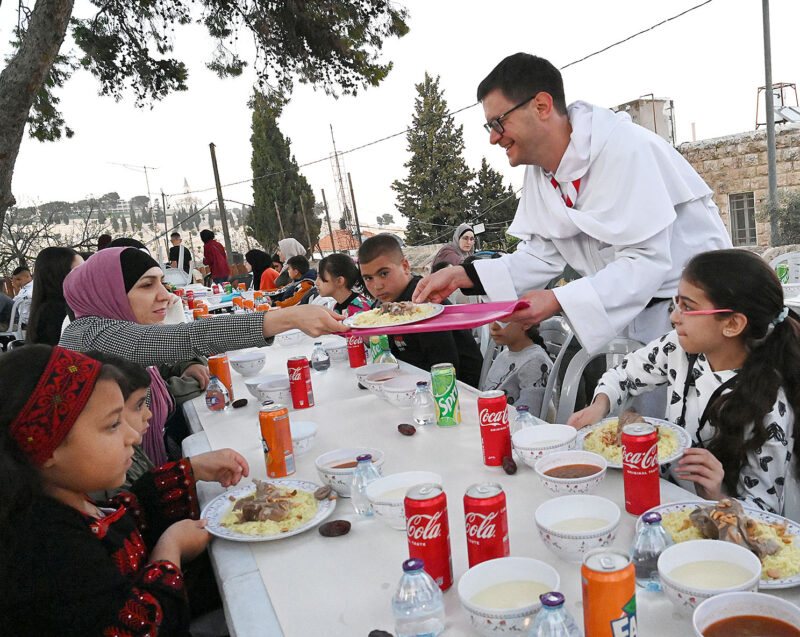Christians need to go back to the understanding of themselves as “a community of peacemakers”, and that the call to become a peacemaker is not to an individual, but to the whole Church.
This was gist of the workshop “Peace-making and the Pursuit of Justice” held by Dr Jeremy Simons on Zoom on March 25. The workshop was organised by JustPeace Dunedin in response to Pope Francis’ call to reflect on peace during Lent.
Dr Simons, who teaches part-time at the University of Otago, has a doctorate in peace and conflict studies, as well as 20 years of experience in peacebuilding, human rights advocacy, community organising, and restorative justice, both in the US and in the Philippines.
In an interview with NZ Catholic, Dr Simons said that he started the workshop by sharing his experiences working with the Lumad communities in Davao, a province in Mindanao, the southern island of the Philippines.
“To be a datu or a chief, one has to have a proven ability to resolve conflicts in the village or the community,” he said, explaining that peace-making is a core competency for leadership in that tribe.
The Talaandig tribe of Bukidnon (also in Mindanao), on the other hand, has a creation story that “is a story of peace-making among three spiritual beings”, he said.
“They have a collective identity that is defined by the stories of creation, and of their epic narratives that indicate they were appointed as peacemakers,” he added.
“[My] takeaway from that . . . we need to go back to our creation story. We need to go back to our understanding of us being a peace-making people, a community of peacemakers,” Dr Simons said.
With so much conflict in different parts of the world such as Ukraine, Tigray, Myanmar and even the recent Wellington protest, people are becoming quite concerned.
It is important, he said, for Catholics to ground themselves in spiritual and social resources of our faith, like the Beatitudes.
“I see this as a catechism for peace-makers, because all the things here are things that are needed: blessed are the poor in spirit, humility, mourning, meekness, hungering and thirsting for justice, mercy, purity, peace-making, and acknowledging that we will be persecuted when we do this,” he said.
Dr Simons said that being persecuted for peace-making, loving our enemies and praying for our persecutors seems like paradoxes or contradictions.
“What we consider contradictions or paradoxes are ways of understanding the complexity of what is involved in peace-making,” he said, adding that “things like mercy and justice and truth and peace are all in the heart of this process of reconciliation”.
Dr Simons also emphasised that our understanding of peace should not just be the absence of conflict, but should be grounded in the Hebrew understanding of the word “shalom, which is a holistic well-being, harmony with God and creation itself and the world around us”.
“That is something that takes intentional work, and that is why we are called to do that as a community,” he said.
Dr Simons also told NZ Catholic that intentional peace-making requires “really thinking strategically and critically about how we use power in the world, and moving to forms of power that are non-violent, that are egalitarian, [and] that seek to come alongside those who are the least, the most marginalised”.
“[We need to] think very critically about how to work against the marginalisation, the oppression, the violence that impacts our communities. That’s what we call active non-violence,” he said.
Dr Simons said that research shows that non-violent struggles are much more successful than violent struggles in the long run.
“Research tells us that the most effective transformation or change around violent realities is through non-violence. This produces more lasting, more democratic and more effective results,” he said.
Dr Simons said that he sees peacebuilding as a vocation, “something that I’m called to do”.
“It has a prophetic role, actually. There is an element of speaking out for justice, for those who are marginalised and oppressed, and that can be sometimes, quite difficult, quite confrontational or confronting.
“But I’ve also realised that within that role is also a call to be healers, and to be about healing and restoring relationships and making things right.”
He said that, over the years, he learned to be “more sensitive to walking with people through the process of bringing justice, and how [one] is trying to extend that invitation, not just confrontation”.

Reader Interactions